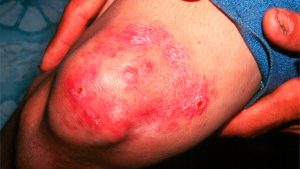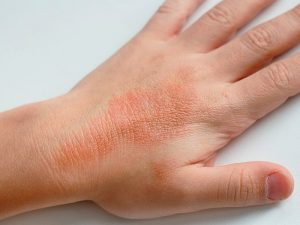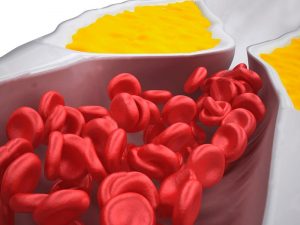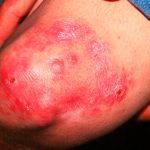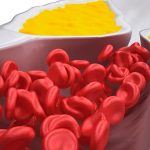Irritable bowel syndrome (IBS) is a digestive disorder that affects the large intestine, causing abdominal discomfort such as swelling, pain, cramping, constipation and/or diarrhea. It is a chronic disorder that requires long-term specialist treatment.
Not all people have severe symptoms of IBS; they appear in only a small percentage. However, it is important to maintain a healthy diet and avoid stress and a sedentary lifestyle.
It is also important to emphasize that irritable bowel syndrome does not cause changes in the intestinal tissue and does not increase the risk of colorectal cancer.
The reasons why IBS occurs are not clear, although it can appear after an intestinal infection or in the presence of parasites. Stress is another factor. Nerves can be more active when there is a lot of stress, affecting intestinal functioning, generating more sensitivity and contraction of the intestine.
Between 10 per cent and 15 per cent of the American population suffers from irritable bowel syndrome symptoms, resulting in a visit to a gastroenterologist, the medical specialist who treats the condition. IBS can occur at any age but affects mostly adolescents and those who begin adulthood, but is less likely in people older than 50.
Irritable Bowel Syndrome Definition
Irritable bowel syndrome is a disorder that affects the large intestine, causing symptoms such as pain, abdominal discomfort, bloating, constipation or diarrhea. It is the most common gastrointestinal disorder diagnosed in the world, and it is estimated that only 15 per cent of the population that experiences these symptoms goes to the doctor.
IBS Signs
Symptoms vary from person to person and can be mild or severe. A person has IBS when symptoms have been present for up to three days a month for a three-month cycle.
The main symptoms, which are abdominal pain, gas, fullness, distension, diarrhea or constipation, reduce little by little or disappear entirely after one or more bowel movements. If the frequency of bowel movements changes, the symptoms may worsen and constipation may alternate with diarrhea.
IBS-related nausea due to stress, or digestive or hormonal imbalance, is common. This condition can progress to spasms and vomiting.
Irritable Bowel Syndrome Causes
It is not known precisely what causes this disorder but it can occur after a bacterial infection by parasites or even, and very often, due to stress. IBS is believed to be caused by visceral sensitivity when intestine nerves create hyperactive reactions to produce excessive or painful gas or bowel movements.
Other factors that can lead to the development of IBS are:
- Muscle contractions in the intestine
This usually happens when the muscle layers that cover the walls of the intestine contract as food goes through the digestive tract. There are two types of contractions: strong and weak. The strong ones cause gas, bloating, diarrhea, and last longer than usual. The weak ones cause slowness in the passage of food, making the stools to become hard and dry.
- The Nervous System
Anomalies that usually occur in the nerves of the digestive system can cause discomfort in the abdomen because it gets stretched by accumulated gases or feces. The brain communicates with the intestine and can make it overreact and cause pain, diarrhea or constipation.
- Inflammation of the intestine
Many people who suffer from IBS get to have a higher number of cells in the intestine’s immune system, and they react with pain and diarrhea.
- Serious infection
IBS may occur after a severe event of diarrhea caused by bacteria or an intestinal virus. It is also associated with excess bacteria in the intestine.
- Alteration of microflora
Microflora are good bacteria that live in the intestine, fulfilling an essential job for health. Research has revealed that the microflora in people with IBS may vary compared with microflora in healthy people.
Food allergies can trigger symptoms of IBS, although it is not very common. In some people, symptoms get worse when they consume foods and beverages such as wheat, citrus fruits, beans, cabbage, dairy products and sodas. Stress aggravates symptoms. Women are more likely to suffer from IBS and symptoms worsen during or near the menstrual period.
Irritable Bowel Treatment
There is no specific treatment for IBS. The best way to alleviate symptoms is by changing lifestyle, improving sleep habits and exercising to reduce anxiety.
Follow these tips to mitigate symptoms and improve your quality of life:
- Avoid drinks or foods that stimulate the intestines, such as soda, caffeine, alcohol, tea, among others.
- Eat smaller portions and increase fiber intake; this will help relieve constipation and diarrhea.
- Avoid smoking.
- Drink water regularly and eat fruits and vegetables.
- Eat five meals a day.
- Take the time you need to evacuate the bowels.
- Avoid stressful situations.
IBS and alcohol do not mix. People with IBS have digestive sensitivity and alcohol is one of the worst factors that trigger the symptoms of the syndrome; in fact, it increases the risk of developing cancer. Drinking alcohol only worsens symptoms, promotes production of ulcers and makes it difficult to heal. Avoid it while you have this disease.
Irritable Bowel Syndrome Medication
There are a lot of medications that help to soften the symptoms; and are administered only under the medical supervision of a gastroenterologist. Some of the medicines that could help treat IBS are fiber, laxatives, antidiarrheals, spasmolytics, antidepressants and prebiotics; taking one or some depends on the diagnosis.
Diet
Maintaining a healthy diet is essential to prevent or counteract symptoms. There is no one-diet-fits-all and each person should determine which foods worsen symptoms and avoid them. However, to help mitigate symptoms, you can:
- Decrease the consumption of insoluble fiber from whole foods because they contribute to intestinal imbalance.
- Avoid citrus fruits such as oranges, high-fat foods and spinach, which stops the laxative effect that bile salts generate in the colon.
- Reduce the consumption of fructose obtained mostly from fruits. You must choose the richest in pectin such as apples with skin.
- Eliminate the consumption of spicy foods and soft drinks.
- To control stress, you can take passionflower and valerian.
Monash University in Australia developed a diet for IBS called FODMAP (Fermentable Oligo-, Di-, Mono-saccharides and Polyols). It consists of low consumption of fructose, lactose, fructans, galactans and polyols, present in the following foods:
- Fruits such as apple and pear.
- Vegetables such as asparagus, onion and garlic.
- Legumes such as pea and lentils.
- Wheat cereals and derivatives of rye and barley.
- Dairy products such as milk, cheese, ice cream and yogurt.
- Artificial sweeteners such as sorbitol, mannitol, isomalt, maltitol and xylitol.


